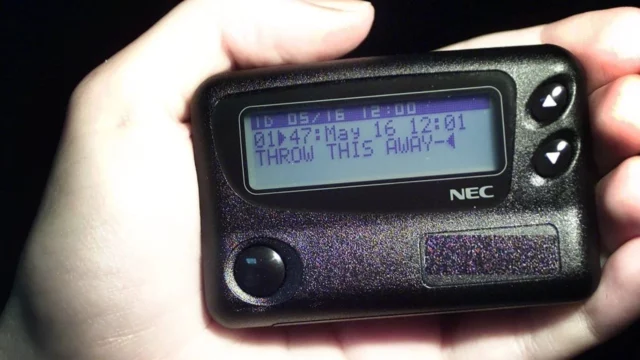Israel executed an unprecedented cyber attack in history, delivering a major blow to Hezbollah members. In this attack, old pager devices used by Hezbollah members, some dating back 20-30 years, were hacked and turned into explosives. As a result, thousands of Hezbollah members were either injured or killed when these devices exploded, often without them even realizing what was happening.
In the attack, Hezbollah’s pagers were detonated simultaneously, resulting in nearly 3,000 members being injured. Many Hezbollah members suffered serious injuries due to the explosions of these antique technological devices that they carried on various parts of their bodies.
The attack shocked the world, as no one expected such a sophisticated cyber attack. After the incident, hundreds of wounded were rushed to hospitals, with some losing limbs, while others lost their lives. But the event left a lingering question: Can phones be remotely detonated?
Can Phones Be Remotely Detonated?
This attack has once again brought the possibility of remotely hacking and detonating technological devices into question. People are now wondering if modern devices like smartphones could have their batteries remotely controlled and detonated.
Batteries are among the most sensitive parts of phones. In the past, there have been instances where smartphone batteries exploded due to manufacturing defects. In fact, some users were even barred from bringing these faulty devices onto airplanes.
These issues arose from poor battery placement and microscopic manufacturing errors, posing significant security threats. However, these faulty devices were recalled and replaced with safer alternatives.
Why Do Batteries Explode?
Battery explosions are not solely due to manufacturing errors. Low-quality, uncertified aftermarket products, known as third-party batteries, also pose significant risks. Although they are often chosen for their low cost, they can have serious safety flaws. Quality issues in third-party batteries can lead to overheating or explosions.

User errors can also cause similar risks. For instance, leaving a phone in the sun on a hot summer day can cause it to overheat and display an automatic shutdown warning. Such situations can cause permanent damage to the battery and even lead to explosions.
Compared to pagers, smartphones are equipped with far more advanced security measures. They contain multiple layers of security, both in hardware and software. For example, mechanisms to disable the battery to prevent overheating or automatic shutdown functions are in place. Therefore, it is nearly impossible for modern smartphones to be hacked and have their batteries detonated.
However, Israel’s recent attack has demonstrated that no technology is 100% secure. Even old technologies that were once considered safe have now been shown to be vulnerable.
No one expected that pagers could be hacked and detonated, yet this event has changed the game. For this reason, it cannot be entirely ruled out that modern smart devices (such as phones, earbuds, and smartwatches) might face a similar threat in the future. Nevertheless, it is safe to say that this risk remains extremely low.














